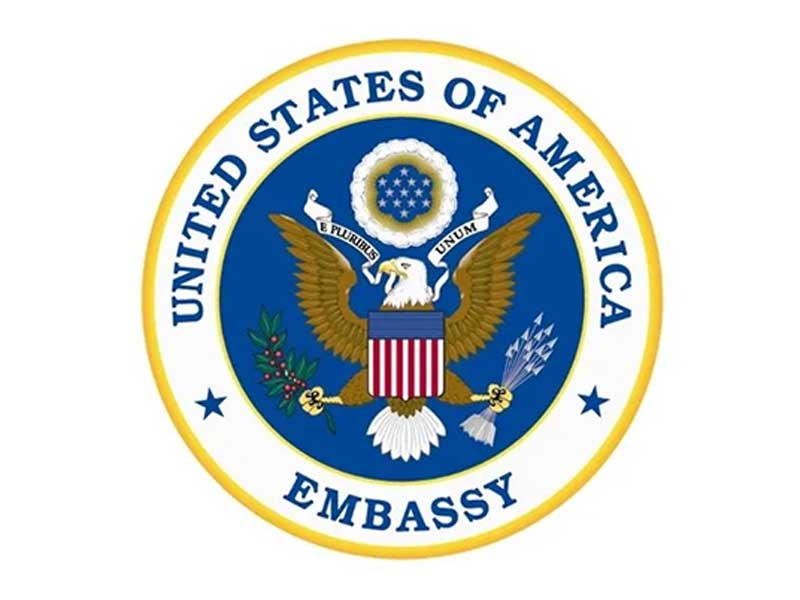The United States Mission in Nigeria has publicly criticized Nigerian state governors for their lavish spending on non-essential projects, highlighting a stark disconnect between the ruling class and the economic realities faced by ordinary Nigerians. The U.S. Embassy shared a report via its official channels, highlighting how governors are allocating billions of naira to build or renovate government houses while citizens grapple with severe economic hardship. The statement, amplified by civic groups like BudgIT Nigeria and the Civil Society Legislative Advocacy Centre (CISLAC), has sparked renewed debate about fiscal responsibility and governance priorities in Nigeria.
The U.S. Mission’s critique, shared through a tweet on July 29, referenced a detailed report exposing how state governors are prioritizing extravagant projects over critical sectors like education, healthcare, and agriculture. For example, Oyo State Governor Seyi Makinde approved N63.4 billion for the renovation of the Government House, citing its “unbefitting” condition. Similarly, in Gombe, one of Nigeria’s poorest states, Governor Inuwa Yahaya committed N14.9 billion to construct a new ultra-modern residence. These expenditures come at a time when President Bola Tinubu has called on Nigerians to endure economic challenges stemming from his administration’s policies, including fuel subsidy removal and currency reforms, which have driven inflation and deepened poverty.
BudgIT Nigeria, a civic organization focused on budget transparency, condemned these spending patterns, stating, “Instead of funding schools, clinics, or agriculture, leaders prioritize buildings they barely use.” CISLAC echoed this sentiment, noting, “There is more money, little accountability, and no priority.” The groups argue that such fiscal irresponsibility exacerbates inequality, undermines developmental goals, and erodes public trust in government institutions.
Nigeria, Africa’s most populous nation and largest economy, is grappling with significant economic challenges. Over 60% of its population lives in poverty, and the country has faced persistent issues with corruption, inadequate infrastructure, and ineffective social service delivery. The economic hardship has been compounded by recent policy changes, including the removal of fuel subsidies and the floating of the naira, which have led to soaring prices for basic goods and services. While the federal government has urged citizens to tighten their belts, the U.S. Mission’s report suggests that state leaders are not sharing in this sacrifice, instead channeling public funds into projects that offer little benefit to the broader population.
The U.S. Embassy’s statement emphasized that this lack of fiscal discipline fuels inequality and hinders Nigeria’s progress toward sustainable development. By highlighting specific examples of extravagant spending, the U.S. Mission has drawn attention to a broader pattern of governance that prioritizes elite comfort over public welfare.
The U.S. Mission’s critique comes within the context of a long-standing partnership between the United States and Nigeria, which spans security, health, education, and economic development. The U.S. has provided significant aid to Nigeria, including $1.2 billion in FY 2022 for initiatives in health, education, and humanitarian relief.
Related Articles:
- U.S. Mission promotes intellectual property rights protection in Nigeria
- U.S. limits Nigerian visa validity to 3-month single entry, triggers public outcry
- U.S. warns citizens to avoid Nigerian military bases, govt facilities
This criticism of extravagant spending adds a new dimension to the U.S.-Nigeria relationship, signaling that the U.S. is not only a partner but also a vocal observer of Nigeria’s domestic governance. By aligning with local civic groups like BudgIT and CISLAC, the U.S. Mission is amplifying Nigerian voices calling for greater transparency and accountability.
The U.S. Mission’s statement has resonated with many Nigerians, who have long expressed frustration with the opulence of their leaders amid widespread poverty. Social media platforms, particularly X, have seen an outpouring of reactions, with users decrying the governors’ spending as tone-deaf and indicative of a broader culture of corruption. However, some defenders of the governors argue that upgrading state facilities is necessary to maintain the dignity of public offices, though this view has been met with skepticism given the scale of the expenditures.
The public criticism from a major international partner like the United States could pressure Nigerian leaders to reassess their priorities. It may also embolden civil society organizations to demand greater accountability, particularly as Nigeria approaches future electoral cycles. However, the entrenched nature of political patronage and corruption in Nigeria suggests that meaningful change will require sustained effort from both domestic and international stakeholders.
As Nigeria navigates economic turmoil, the extravagant spending of state governors risks further alienating a population already burdened by hardship. The alignment of the U.S. Mission with Nigerian civic groups signals a shared commitment to addressing these challenges, but it also places Nigeria’s leaders under greater scrutiny.
For Nigeria to achieve sustainable development and reduce inequality, its leaders must prioritize investments in education, healthcare, and infrastructure over symbolic projects that serve the elite. The U.S. Mission’s critique is a reminder that the world is watching, and that Nigeria’s progress depends on accountable, people-centered governance.
